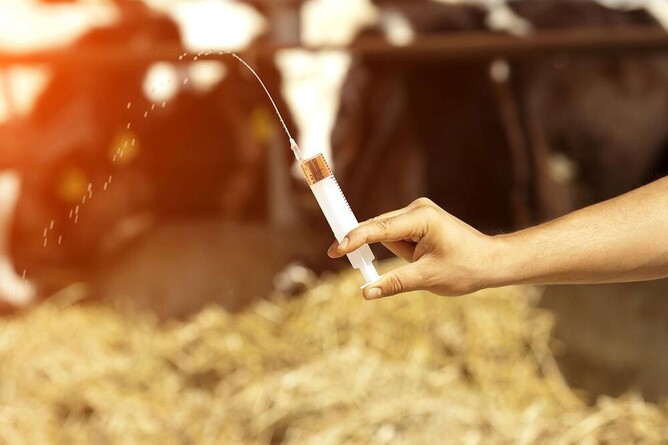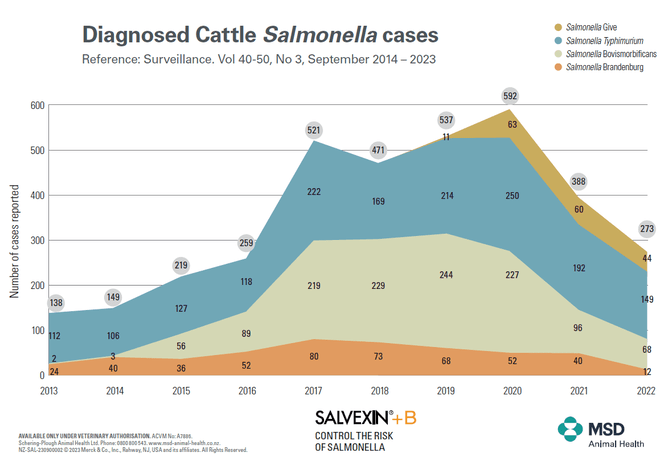Salmonella outbreaks can be very costly and vaccination is the best tool we have.
Salmonella is a zoonotic disease, which means it not only affects cattle, but can be passed to humans too. Immuno-compromised or pregnant people are the most at risk of infection.
There are four main strains of salmonella that can affect cattle:
S. Typhimeriem (gut),
S. Bovismorbificans (gut),
S. Brandenburg (abortions)
S. Give (gut). This is a newer strain, discovered in 2019.
Nationally, cases were on the rise until 2021, after which they started to slightly decrease.
Salmonella outbreaks can vary depending on the strain and the timing/season when they occur. The outbreaks that have occurred on the West Coast are generally enteric (gut) or abortion storms.
Financially, salmonella outbreaks can be very costly, from treating sick animals, to lost milk production and dead stock.
Vaccination
Vaccination is the best tool we have for preventing salmonella outbreaks in cattle. It involves two injections of Salvexin+B, at least four weeks apart, to unvaccinated cattle, followed by an annual booster to provide ongoing protection.
It should be given about two weeks before the ‘risk period’. For most dairy herds, the best time is at dry-off, as the vaccine can cause a drop in milk production and a mild fever.
The vaccine has also been shown to have an increase in antibodies in colostrum, reducing shedding and increasing protection in young calves.
It should not be given at the same time as other vaccines or treatments, or within 48 hours of transport. Vaccination can be given in the face of an outbreak, but it will take about 10 days to start working.
Aside from the financial considerations, vaccination can also
reduce the amount of antibiotics required,
provide better animal welfare, owing to less sick animals,
provide peace of mind from protection of your herd and staff.
If your herd is not protected against salmonella, or you would like to discuss vaccination options, please get in touch with one of the large animal team.


